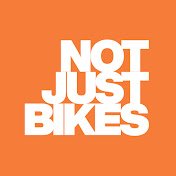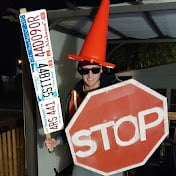Learning things is so cool. You come to understand things about the world around you and the way they operate and maybe this helps you make decisions going forwards about things that interest you. There’s a dark mirror to that though where sometimes you’ll learn about how a thing in your everyday life has been messed up for your whole life and it doesn’t have to be and…
Yeah.
Nobody’s doing anything about it.
Wanna learn about Urban Planning?
Wanna learn about one of many terrible things you interact with every day and how badly handled it is? And how the people who handle it badly want it that way, for bad and selfish reasons, and because they assume nobody knows or cares enough to address them?
Urban planning is something that’s been around you, almost certainly, your whole life. Even if you don’t live in an urban space, and your life and surroundings are rural, you’re still affected by the urban because the urban is where money concentrates and where operations of people get optimised. Rural locations are defined by being not-Urban, and therefore, services and needs for everything are presented in that contrast. Point is… Urban Planning is important.
And it is a subject with a bunch of deliciously nerdy specifics to dig into.
First up here’s Not Just Bikes, a channel from a Canadian expat explaining his life change in the Netherlands. This is a transition from North American car-centric corporate-driven road planning to a place where there’s a deliberate attempt to centre pedestrians.
Now it’s not that this is necessarily an economic cure-all, what with the simple implication that people being active and engaged in their space share community and spend money and that economic activity creates tax revenue and all that. That’s nice, but that’s still buying into a system of the world, the idea of capital as the fundamental way an economy pivots. But it’s important to recognise that just the lived experience of someone who can operate, and the way their life works is just… better?
Kids can hang out with one another, people can do stuff, a trip to the library is a trip to the library and they can just do that… people can spend time in shared spaces and it’s really nice and it’s just pleasant compared to the isolation of people you see in spaces where people have no parks, no places to go, no way to hang out in public.
Then there’s Strong Towns, which in a sort of teasing sense can be seen as the readings that Not Just Bikes is summarising. Strong Towns is the same kind of ideas from a city planner’s perspective, someone with the engineering information. Strong Towns is an American channel, focusing on an American perspective, and for that reason it’s positioned in a very American Political Position. Like, it’s arguing for its position, it’s making a case, and that’s going to involve sometimes, half-statements of cases, or presentation of positions within a particular framework.
Basically, this is urban planning for American Capitalism, too, and it’s done with the idea that you can’t just, say, break Corporations’ backs and demand they fuck off. It’s going to always have that tension to it, where the fundamentally twisted spiral around which the system is built is still going to think in term of taxation and earning and corporate rates.
There’s still a lot of interesting talk about things like speed limits, and road design and the planning that feeds into that. There’s an attempt to generate a political movement here, a base of information and political will that cares about improving city planning and having it so that this is one of many issues that American political powers don’t just assume ‘nobody cares about anyway.’
And where would this kind of setup be without someone who was willing to say something mean? I learned about Alan Fisher because a youtuber from my country, Economics Explained, expressed opinions about how actually, everything ever improving would be bad, actually, real classic ‘well, the results are bad, but the causes are good’ kind of nonsense thinking, and Fisher made fun of it.
This got him into my attention space and y’know it’s nice that there’s someone in this space who isn’t just a complete trains dork, with the permanently gentle demeanour of a person invested in just liking bikes so much. Fisher here is willing to mock. Which, given a lot of the responses to urban planner opinions like ‘maybe it is better if people can walk more’ are often ‘but I like my car, though’ or ‘but taxes, though?’ and it’s worth time throwing some of these dorks’ opinions in the trash.
I’m in Australia, I’m so very far from the actual problem as it’s possible for a person to be while still sharing essentially the same culture. I have public transport in my area, my city is bikeable, and I can walk to the store, the library, and the post office. I do not live in a place that has the same problems these people are trying to address, and I also don’t live in the Netherlands where I can assume my youngest family members will be able to bike to school safely.
But the fundamental issues these channels talk about are ones about who cares about where you live in, and how they express it. They’re about sharing spaces with one another, they’re about community, and they’re about the meaningful ways we can connect to one another in a society that honestly is doing what it can to keep us apart. There’s this term, alienation you’ll hear thrown around in the leftist spaces, and like…
… do you know your neighbours?
Like know them?
What are their names?
I know some of mine. I’ve tried to remember them. I want to make sure I know them.
… but I had to reach out and learn. I had to attend the social meetings, and share some snacks and bake some biscuits and slice.



